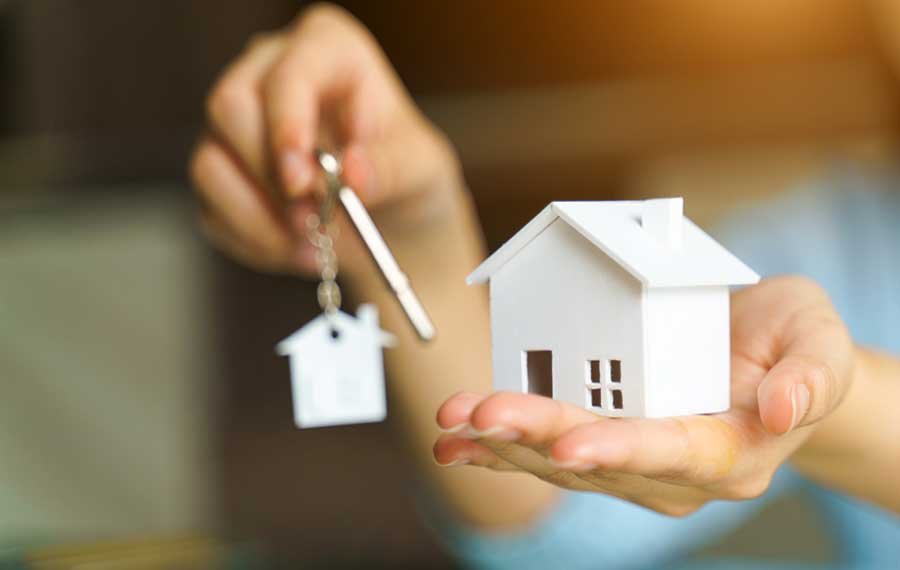Buying your first house is a huge leap into the unknown. Houses, even small ones, are expensive, and seeing the number of zeros on the contract can make your head spin. But homes are also an excellent investment and can significantly improve your quality of life.
The key to buying a home stress-free is knowing when you are ready to take the plunge. Whether you are looking to buy a house on a beach in Hawaii, a cabin in the Rockies in Colorado, a brownstone in Brooklyn or a home in historic downtown Charleston, South Carolina, explore these seven signs that let you know you’re ready to purchase your first property.
1. You Need More Space
One of the first questions you need to ask when thinking about buying a house is if such a significant purchase is necessary. If you feel cramped in your existing home, it’s an easy choice, but it can be a bit harder if you are comfortable in the size and structure of your current space.
A new home can increase your living standard and give you and your family more space to grow. However, if you are comfortable in your current living situation, you can take additional time to consider your options and find the perfect home.
It is important to think of your comfort for the next few years as well. If you plan to add pets or children to your family, it might be wise to purchase a larger home in preparation for your growing family.
2. You Have a Job and a Stable Source of Income
A job and a stable source of income are two of the most critical prerequisites for buying a home. When you buy a home, you must make a monthly mortgage payment, and failure to do so could result in foreclosure. This is a situation everyone wants to avoid, so before you consider purchasing a home, make sure you can pay the mortgage every month.
Banks recommend spending 28% of your monthly gross income on your mortgage payment. Use this percentage to determine how much you can afford to spend. Search for properties that fall within the 28% benchmark to set yourself up for financial success after purchasing your home.
3. You Don’t Have Any Outstanding Debt
Banks check your credit score before giving you a home loan. High levels of outstanding debt can hurt your loan prospects. If you have existing credit card or student loan debt, pay the account down before taking out more debt in a home loan.
Check your credit score with one of the three national credit score reporters to understand the current status of your credit before proceeding with any home purchase. You can access a free copy of your credit once a week from Equifax, Experian or Transunion through the end of 2022.

4. You Have Enough Saved for a Down Payment
Every mortgage requires some form of down payment, and it usually averages around 6% of the home’s total cost. The average price of a home in the United States in 2021 was $453,700, and while this varies enormously from place to place, having 6% of the average cost prepared — roughly $27,102 — is a good benchmark.
If you already have enough for the average down payment in the area where you want to buy, it is a good sign you are ready to take the plunge into home ownership.
5. You Are Ready to Settle Down
One of the more philosophical issues you should consider before purchasing a home is if you are ready to settle down. The average duration of home ownership is 13 years, so you must ask yourself if you want to be in one place for at least that long. Do you like the place you live and want to stay there long term? Is the home you wish to buy large enough to accommodate your plans?
You should also question if the area is the right place for you. If, for example, you live in Charleston, you should ask, “Is Charleston, South Carolina, a good place to live?” The city of Charleston offers many amenities, but suburbs like Mt. Pleasant provide more space, and beach communities like Folly Beach offer a more relaxed lifestyle with better access to nature. Only you can answer these questions, so consider them carefully.
6. You Have an Emergency Fund
All homeowners face unexpected expenses, from emergency repairs to random weather damage. The average home has 2.2 emergency repairs yearly, costing $2,231 on average. You need to have money saved to handle emergency expenses when they crop up.

7. You Can Handle the Burden of Homeownership
Homeownership can be challenging and comes with responsibility and pressure. The responsibilities that come with homeownership are profoundly different from renting a home. You are responsible for fixing any problems and must keep your home in good repair and looking nice. You must care for outdoor areas like yards and fences and perform routine maintenance on the property.
Additionally, your city or neighborhood may have rules, ordinances and regulations. You must understand any HOA or city rules and keep your home compliant.
Some people don’t want this added stress, and that’s okay. Understand the full scope of your responsibilities and think about your willingness to shoulder that burden.
You Understand Your Location’s Real Estate Market
Homes are more than just a roof over your head; they are a financial asset. Nationwide, the return on a 30-year investment in a home is between 8.6 and 10%. However, this average can vary wildly depending on your area. In South Carolina, returns on single-family home purchases increased at around 5.8% per quarter in 2021.
Understanding your area’s current economic situation and expected forecasts is essential when purchasing a home. You don’t want to buy an overvalued home, nor should you buy in an area where homes are losing value. Economic research might take some fun out of buying a home, but the potential future financial implications make it a necessary step.
It is a good idea to speak with a realtor to understand the current economic outlook and how it impacts your return on investment.
Start Looking for Your First Home When You’re Ready
Buying your first home is a significant life experience. Although it’s easy to rush into purchasing a house, it’s vital to take stock of your financial and emotional readiness before browsing local listings. If you have a steady income, are prepared for the responsibilities of homeownership and know what you’re looking for, consider working with a real estate agent to help you find your dream home.












